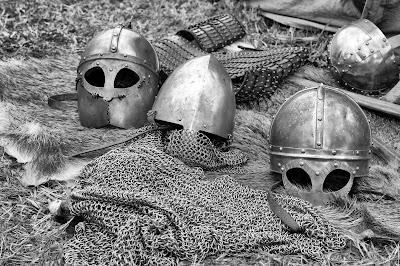Featured
- Get link
- X
- Other Apps
FALL OF MUGHAL EMPIRE

The Mughal Empire was founded in 1526 AD
by Babur in north India. Babar's
descendants then expanded and organized the Mughal Empire through theirheroism,
courage, ability and diplomacy. The country developed during the reigns ofAkbar,
Jahangir and ShahJahan, but in AD. After
Aurangzeb's death in 1707, the empire collapsed and soon collapsed.
Aurangzeb's responsibility was as follows:
Aurangzeb's government policy -
Aurangzeb's personal character and
governance policy can be attributed mainly to the collapse of the Mughal
Empire. Aurangzeb was a staunch Sunni Muslim.
During hisreign, he committed various
atrocities on ShiaMuslims, Hindus, Sikhs
and other religions.
The sons of Rajput king Jaswant Singh
tried to make him a Muslim. His radical religious policy led the Hindus ofIndia,
especially Jats, Marathas and Rajputs, to rebel against them,
determined to end the Mughal rule, which shook the foundations of a strong and
united Mughal rule.
Aurangzeb's Southern Policy-
The Marathas in the south got an
opportunity to increase their influence and organize.
If Aurangzeb had adopted a policy of
cooperation with the rulers of Bijapur and Golkunda, these states would have
helped Aurangzeb destroy the power of the Marathas in the south.
Thus Aurangzeb's governance policy had an
adverse impact on the power and organization of the Mughal Empire, which led to
the collapse of the Mughal Empire day by day.
Ineligible successor-
The capacity of the successors was
necessary to prevent the chaos and chaos that arose during Aurangzeb's reign.
In that situation, a worthy and visionary
emperor like Akbar could have been controlled. But unfortunately Aurangzeb's
successor lacked such administrative capacity and capacity. As a result, the
power of the Mughal Empire faded and one day it was destroyed.
Economic weakness-
The government exchequer remained empty
due to the imperialist policy of the Mughal emperors. During Aurangzeb's reign,
the economic crisis deepened when he wasted huge money in the victory campaign
of the southern states.
After Aurangzeb'sdeath, his successor did not
take any concrete steps to enrichthe royaltreasure, but his luxurious and
spending habit made the economic problem more complicated.
Military dislocation and indiscipline-
After Aurangzeb's rule, the military
organization eased. His successor himself was ineligible. He would not have
taken any notice of the arrangements and discipline of the soldiers.
The Mughal soldiers were very weakened
with the use of alcohol and other narcotics. Moral and physical force came to
an end.
The practice of mansabdari performed by
Akbar was a lot of shortcomings. Big zamindars and soldiers were given the post
of mansabdars in the army. It was natural for these mansadars to create
laziness and weakness among the soldiers due to lack of military skills and
organizational capacity.
Gradually, discipline also increased. It
was no surprise if the foreignarmy was skilled in conducting wars with
well-organized and skilled generals.
Aurangzeb's policy towards Rajputs -
Before Aurangzeb, Akbar and others
understood the qualities of the Character of the Rajputs and made them friends,
which helped to make the empire powerful and permanent. But Aurangzeb had
ignored india's most powerful Rajput caste because of his religion, which
resulted in the Rajputs becoming enemies of the Mughals.
(10) Alien Invasion-
Two major attacks on India during the
Mughal rule were carried out by AhmadShah Abdali and Nadir Shah. They massacred
here and looted a lot of property. In addition, traders from many European
countries affected by India's prosperity built their bases here. The British
East India Company played an effective role in the fall of the Mughal
Empire. After the Plassey War of 1757,
the company of East India took over the reins of this country.
- Get link
- X
- Other Apps


Comments
Post a Comment